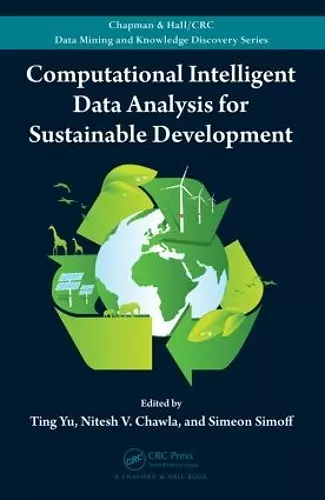Computational Intelligent Data Analysis for Sustainable Development
Ting Yu editor Nitesh Chawla editor Simeon Simoff editor
Format:Hardback
Publisher:Taylor & Francis Inc
Published:4th Apr '13
Currently unavailable, and unfortunately no date known when it will be back
This hardback is available in another edition too:
- Paperback£61.99(9781138198692)

Going beyond performing simple analyses, researchers involved in the highly dynamic field of computational intelligent data analysis design algorithms that solve increasingly complex data problems in changing environments, including economic, environmental, and social data. Computational Intelligent Data Analysis for Sustainable Development presents novel methodologies for automatically processing these types of data to support rational decision making for sustainable development. Through numerous case studies and applications, it illustrates important data analysis methods, including mathematical optimization, machine learning, signal processing, and temporal and spatial analysis, for quantifying and describing sustainable development problems.
With a focus on integrated sustainability analysis, the book presents a large-scale quadratic programming algorithm to expand high-resolution input-output tables from the national scale to the multinational scale to measure the carbon footprint of the entire trade supply chain. It also quantifies the error or dispersion between different reclassification and aggregation schemas, revealing that aggregation errors have a high concentration over specific regions and sectors.
The book summarizes the latest contributions of the data analysis community to climate change research. A profuse amount of climate data of various types is available, providing a rich and fertile playground for future data mining and machine learning research. The book also pays special attention to several critical challenges in the science of climate extremes that are not handled by the current generation of climate models. It discusses potential conceptual and methodological directions to build a close integration between physical understanding, or physics-based modeling, and data-driven insights.
The book then covers the conservation of species and ecologically valuable land. A case study on the Pennsylvania Dirt and Gravel Roads Program demonstrates that multiple-objective linear programming is a more versatile and efficient approach than the widely used benefit targeting selection process.
Moving on to renewable energy and the need for smart grids, the book explores how the ongoing transformation to a sustainable energy system of renewable sources leads to a paradigm shift from demand-driven generation to generation-driven demand. It shows how to maximize renewable energy as electricity by building a supergrid or mixing renewable sources with demand management and storage. It also presents intelligent data analysis for real-time detection of disruptive events from power system frequency data collected using an existing Internet-based frequency monitoring network as well as evaluates a set of computationally...
ISBN: 9781439895948
Dimensions: unknown
Weight: 748g
440 pages